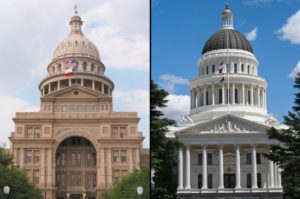I dislike boycotts, even when they are launched to promote a cause with which I might agree.
Sometimes they give me heartburn. Take the decision by California officials to no longer send state employees to Texas because of the Lone Star State’s recent legislation affecting LGBT residents.
I might lose some “friends” over this blog post. If so, well, so be it.
The Texas Legislature recently allowed welfare agencies to deny adoptions for same sex couples based on their religious beliefs. California Attorney General Xavier Becerra declared the law to be discriminatory and as a result, the state no longer will send employees on state-funded trips to Texas.
Yes, the law discriminates. I don’t like it, either. It opens the door for folks to declare religious objections when they faith might not be the actual reason. Is a boycott of Texas the most appropriate response? I tend to doubt it. I am open to discussion about this and would invite comments arguing the point.
My concern is that boycotts tend to inflict gratuitous collateral damage. The people who are hurt by them quite often are business owners or residents of the jurisdiction being boycotted; these individuals might happen to agree with the reason for the boycott, so they are caught in a political vise.
According to the Texas Tribune: “While the California DOJ works to protect the rights of all our people, discriminatory laws in any part of our country send all of us several steps back,” said Xavier Becerra, the California attorney general. “That’s why when California said we would not tolerate discrimination against LGBTQ members of our community, we meant it.”
OK, Mr. Attorney General. I get it. Raise hell about it. Stomp your feet. Pound on your desk. Declare it to be bad law and urge residents of Texas to seek to overturn it. I agree with you!
I just fail to understand how a boycott is going to bring tangible result, other than to inflict damage to private citizens who would benefit from state employees traveling to Texas.
